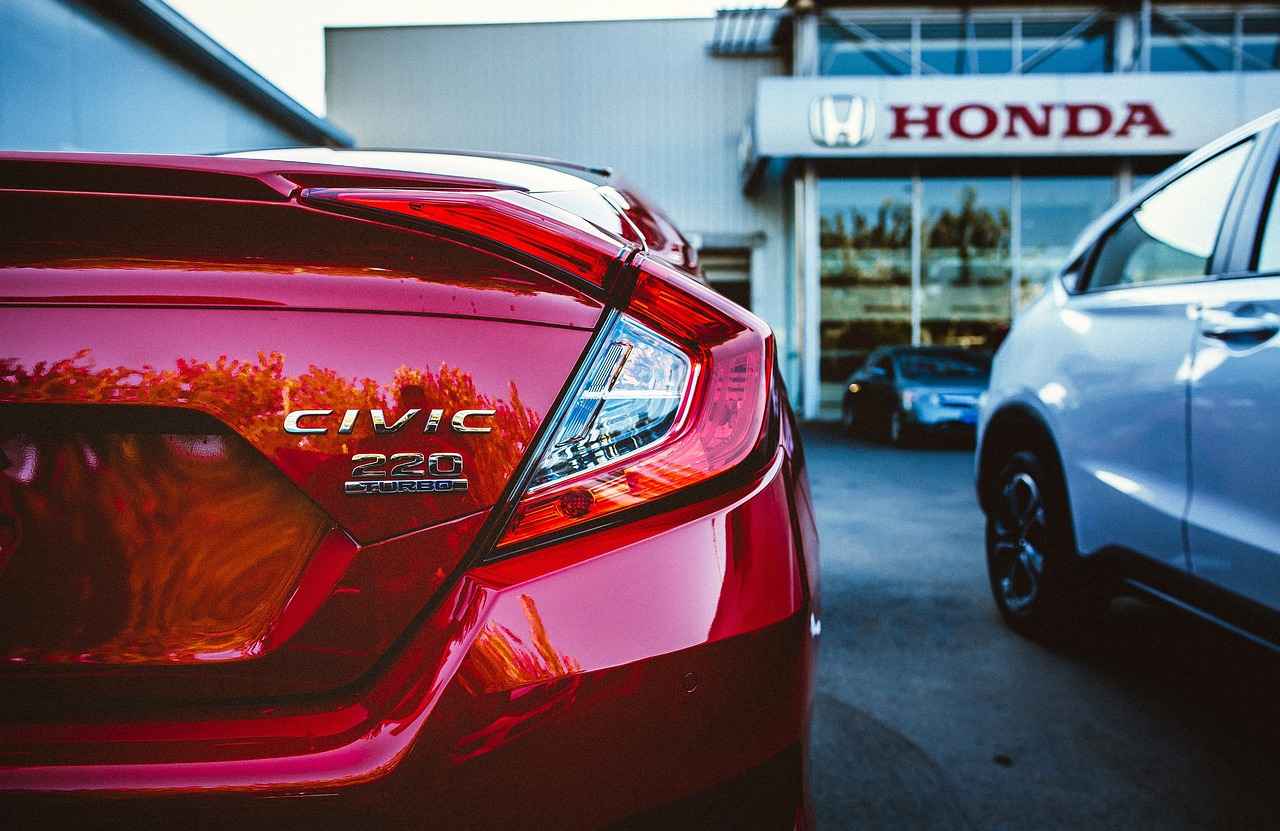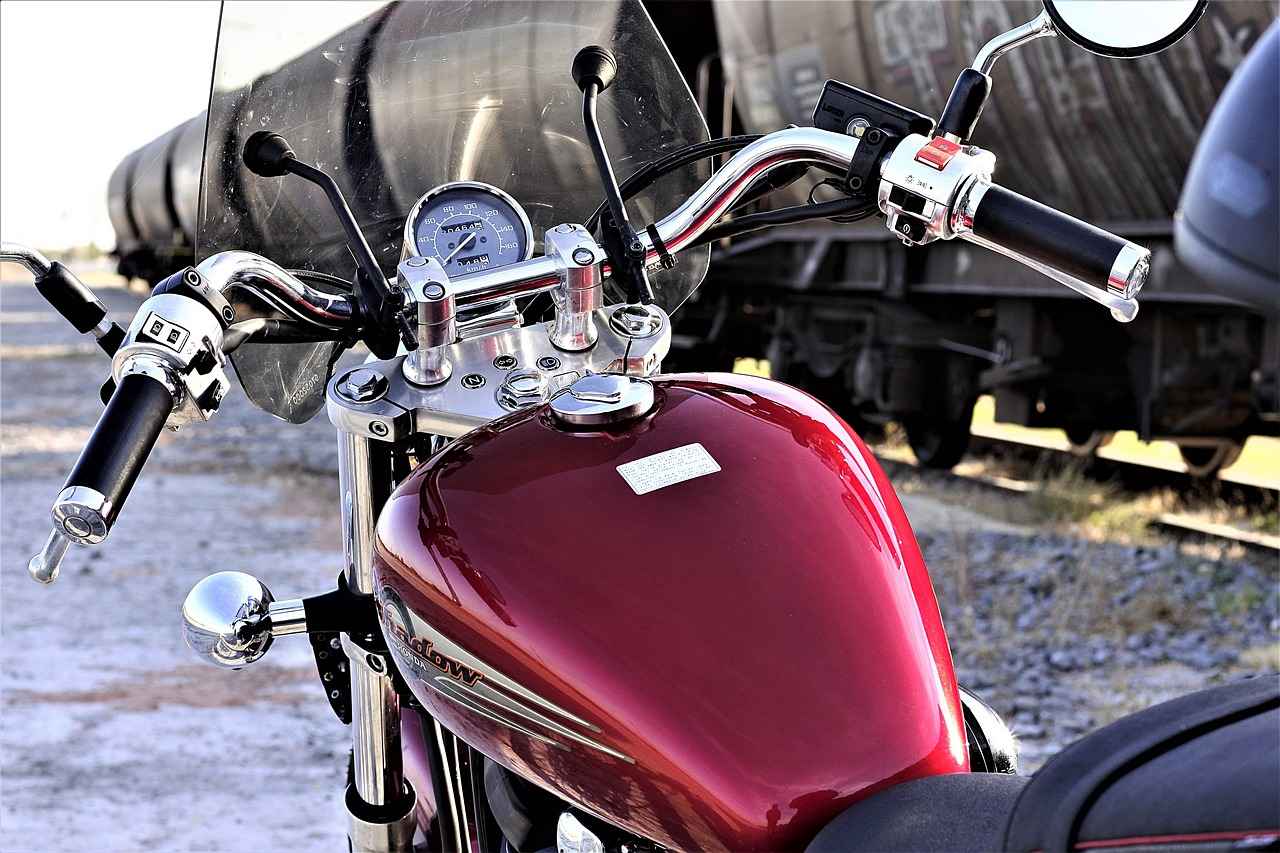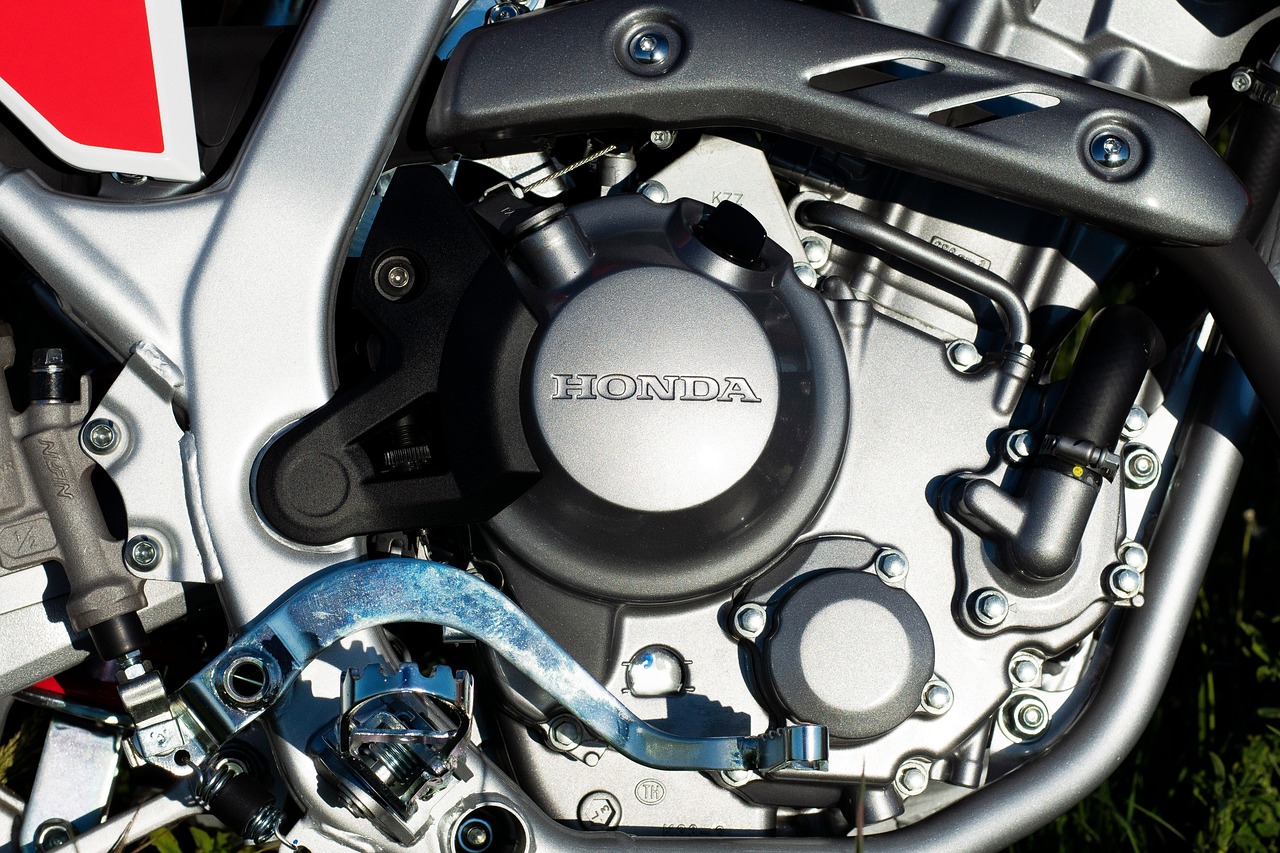The Honda Accord has long been a staple in the sedan market, renowned for its reliability, comfort, and performance. A common question among potential buyers is whether the Honda Accord features a four-wheel drive (4WD) system. This article delves into the drivetrain options available in the Honda Accord, its performance characteristics, and how it compares to other vehicles in its class.
Four-wheel drive is a drivetrain system that powers all four wheels of a vehicle simultaneously. This system is particularly beneficial in challenging driving conditions, such as snow, mud, or off-road scenarios, as it enhances traction and stability. In contrast, many sedans, including the Honda Accord, typically utilize front-wheel drive (FWD), which drives only the front wheels.
The Honda Accord is primarily known for its front-wheel drive configuration. This design is favored for its efficiency and effective handling on paved roads. The Accord is equipped with a robust engine lineup, including turbocharged options, which contribute to its performance while maintaining good fuel economy.
While the Honda Accord is predominantly a front-wheel drive vehicle, there are no current models or trims that include a four-wheel drive option. This misconception often arises due to the availability of all-wheel drive (AWD) in some competing sedan models. It is essential for buyers to understand this distinction when considering their options.
Front-wheel drive has become the standard for sedans like the Honda Accord due to several advantages. FWD vehicles generally offer better fuel efficiency, reduced weight, and improved interior space. Additionally, FWD provides predictable handling characteristics, making it easier for everyday drivers to navigate various road conditions.
When comparing four-wheel drive and front-wheel drive systems, several factors come into play:
- Handling: 4WD systems excel in off-road and adverse weather conditions, while FWD offers better handling in normal driving scenarios.
- Fuel Efficiency: FWD vehicles, like the Honda Accord, typically have better fuel economy compared to their 4WD counterparts.
- Driving Experience: FWD vehicles provide a smoother ride on paved roads, making them ideal for urban commuting.
The Honda Accord is celebrated for its responsive handling and stability on the road. Its design, coupled with the FWD system, contributes to a balanced driving experience, allowing drivers to feel in control even in challenging conditions. The Accord’s suspension system is engineered to absorb bumps and provide a comfortable ride.
For those specifically seeking four-wheel drive capabilities, Honda offers several models that meet this requirement. The Honda CR-V and the Honda Pilot are excellent alternatives, providing the traction and stability of 4WD for those who need it for off-road adventures or challenging weather conditions.
Understanding consumer preferences is crucial in the automotive market. Many drivers opt for front-wheel drive vehicles like the Honda Accord due to factors such as:
- Cost: FWD vehicles are often less expensive to purchase and maintain.
- Fuel Economy: FWD models typically consume less fuel, appealing to budget-conscious consumers.
- Intended Use: For most drivers, FWD is sufficient for daily commuting and city driving.
Weather conditions play a significant role in the decision to choose between 4WD and FWD. In regions with heavy snowfall or frequent rain, some drivers may prioritize 4WD for additional traction. However, in milder climates, the Honda Accord’s FWD system provides adequate performance for year-round driving.
As automotive technology continues to evolve, there is speculation about potential changes to the Honda Accord’s drivetrain options. While no official announcements have been made regarding the introduction of a 4WD system, Honda’s commitment to innovation may lead to new offerings in future models.
In summary, while the Honda Accord does not currently offer a four-wheel drive option, its front-wheel drive system provides a reliable and efficient driving experience for most consumers. Understanding the differences between drivetrain systems can help buyers make informed decisions based on their specific needs.

What is Four-Wheel Drive?
Four-wheel drive (4WD) is a sophisticated drivetrain system designed to enhance a vehicle’s traction and stability by distributing power to all four wheels. This technology is particularly beneficial in challenging driving conditions, such as off-road terrains, snow, and wet surfaces. Understanding the mechanics of 4WD can help drivers appreciate its advantages and make informed decisions when selecting a vehicle.
The mechanics of 4WD involve a complex system of gears, differentials, and transfer cases that work together to ensure that power is effectively transmitted to both the front and rear wheels. This system can be either full-time, where all four wheels receive power at all times, or part-time, where the driver can switch between two-wheel drive (2WD) and 4WD depending on the conditions. The ability to engage 4WD allows for improved traction, which is essential for navigating slippery or uneven surfaces.
One of the primary benefits of 4WD is its ability to provide enhanced traction. When driving on loose gravel, mud, or snow, having power sent to all four wheels significantly reduces the likelihood of getting stuck. This feature is especially advantageous for off-road enthusiasts who frequently encounter rugged terrains. Moreover, 4WD systems often come equipped with advanced technology such as locking differentials and traction control, which further enhance the vehicle’s capability in adverse conditions.
In addition to improved traction, 4WD systems also offer increased stability. When cornering or driving on uneven surfaces, a vehicle with 4WD can maintain better control compared to its two-wheel drive counterparts. This stability is crucial for ensuring a safe driving experience, particularly in challenging weather conditions.
However, it is essential to consider the trade-offs associated with 4WD. Vehicles equipped with this system often have a higher initial cost and may experience reduced fuel efficiency compared to 2WD vehicles. Additionally, the complexity of 4WD systems can lead to increased maintenance requirements over time. Therefore, potential buyers should weigh these factors against their driving needs and conditions.
In summary, four-wheel drive is a valuable feature for drivers who frequently navigate challenging terrains or adverse weather conditions. Its ability to enhance traction and stability makes it an appealing choice for many. However, understanding the mechanics and implications of 4WD is vital for making an informed decision when selecting a vehicle.

Honda Accord Drivetrain Overview
The Honda Accord has long been celebrated for its exceptional reliability and performance, making it a popular choice among sedan enthusiasts. This section delves into the various drivetrain options available for the Accord, including the widely adopted front-wheel drive (FWD) configuration, and explores how these choices impact the vehicle’s overall driving experience.
The Honda Accord primarily features a front-wheel drive system, which is designed to provide efficient power delivery and excellent traction on the road. This setup allows the vehicle to maintain stability and control, especially in various weather conditions. The FWD configuration is complemented by a range of powerful engine options, including turbocharged variants that enhance performance without sacrificing fuel efficiency.
- Enhanced Fuel Efficiency: FWD vehicles typically weigh less than their all-wheel drive (AWD) counterparts, contributing to better fuel economy.
- Improved Handling: The weight distribution in FWD cars allows for better handling and cornering capabilities, making the Accord agile and responsive.
- Cost-Effective Maintenance: With fewer components than 4WD systems, FWD vehicles often incur lower maintenance costs over time.
While the Honda Accord is predominantly a FWD vehicle, there have been discussions among automotive enthusiasts regarding the potential for an all-wheel drive (AWD) variant. However, as of now, no official AWD model exists for the Accord. This has led to some misconceptions about the vehicle’s capabilities, as many drivers seek the added traction that AWD provides.
Front-wheel drive is a common choice for sedans due to its inherent advantages. The weight of the engine over the front wheels provides better traction during acceleration and helps in maintaining stability during turns. Additionally, FWD systems are generally more compact, allowing for more interior space and a roomier cabin in sedans like the Accord.
When comparing FWD and AWD systems, several factors come into play:
| Feature | FWD | AWD |
|---|---|---|
| Fuel Efficiency | Higher | Lower |
| Cost of Maintenance | Lower | Higher |
| Traction | Good | Excellent |
| Handling | Responsive | Stable |
The handling characteristics of the Honda Accord are noteworthy. The FWD design contributes to a balanced driving experience, allowing for responsive steering and stability on various road conditions. Drivers often praise the Accord for its smooth ride, which is enhanced by the vehicle’s suspension system and overall engineering.
If you’re specifically looking for a four-wheel drive option, Honda offers several models that cater to those needs, such as the Honda CR-V and Honda Pilot. These vehicles provide the added traction and stability that come with AWD systems, making them suitable for off-road adventures and challenging weather conditions.
Understanding consumer preferences is vital in the automotive market. Many drivers opt for FWD vehicles like the Honda Accord due to factors such as lower costs, better fuel efficiency, and sufficient performance for everyday driving. The choice between FWD and AWD often depends on individual needs, driving habits, and regional weather conditions.
Weather conditions can significantly influence the decision to choose between FWD and AWD. In regions with heavy snowfall or frequent rain, AWD may be preferred for its superior traction. However, for most urban and suburban drivers, the Honda Accord’s FWD system provides adequate performance and safety.
As automotive technology evolves, there may be potential developments for the Honda Accord, including the possibility of introducing an AWD option. With increasing consumer demand for versatile vehicles, Honda may consider expanding its lineup to meet these needs.

Does the Honda Accord Offer 4WD?
The Honda Accord, a popular choice among sedans, is primarily known for its front-wheel drive (FWD) configuration. Many potential buyers often wonder, does the Honda Accord offer a four-wheel drive (4WD) option? This question arises due to the increasing popularity of all-wheel drive and four-wheel drive systems in the automotive market. In this section, we will clarify this common misconception and delve into the specifics of the Honda Accord’s drivetrain options.
To begin with, it is essential to understand what four-wheel drive entails. 4WD is a drivetrain system that powers all four wheels of a vehicle, providing enhanced traction and stability, particularly in challenging driving conditions such as snow, mud, or off-road terrains. While this feature is highly beneficial for certain vehicles, it is not a standard offering in most sedans, including the Honda Accord.
When it comes to the Honda Accord, all models and trims are designed with a front-wheel drive system. This configuration is not only efficient but also contributes to the vehicle’s overall handling and fuel economy. The primary focus of the Accord has been to provide a smooth and reliable driving experience on paved roads, making FWD the ideal choice for its design philosophy.
Many drivers may question why a sedan like the Honda Accord does not offer 4WD. The answer lies in the vehicle’s intended use and target market. Sedans are typically designed for everyday commuting, where front-wheel drive suffices for most driving conditions. Additionally, FWD systems are generally lighter and more fuel-efficient compared to their 4WD counterparts, which can lead to better gas mileage—a significant consideration for many consumers.
While some might argue that having a 4WD option could enhance the Accord’s appeal, it’s important to note that Honda does offer other models equipped with four-wheel drive capabilities. For instance, the Honda CR-V and Honda Pilot are excellent alternatives for those seeking a vehicle with 4WD, catering to different needs such as family transport or off-road adventures.
In conclusion, while the Honda Accord does not offer a four-wheel drive option, it remains a top choice for those prioritizing reliability, efficiency, and a comfortable driving experience. Understanding the differences between FWD and 4WD can help potential buyers make informed decisions based on their specific driving needs and conditions.

Why is FWD Common in Sedans?
Front-wheel drive (FWD) has become a standard drivetrain configuration in many sedans, including the popular Honda Accord. This choice is not merely a trend; it is driven by a combination of factors that enhance both performance and practicality. In this section, we will delve into the reasons behind the widespread adoption of FWD in sedans, exploring its benefits and how it meets the needs of modern drivers.
One of the primary reasons for the popularity of FWD in sedans is its efficiency. By placing the engine and transmission at the front of the vehicle, FWD systems allow for a more compact design. This configuration reduces the overall weight of the vehicle, which can lead to improved fuel economy. For instance, the Honda Accord, with its FWD setup, often achieves better miles per gallon compared to its all-wheel drive counterparts, making it an attractive option for those who prioritize fuel efficiency.
Moreover, FWD vehicles tend to have better traction in adverse weather conditions. Since the weight of the engine is located over the front wheels, this setup enhances grip on slippery surfaces, such as rain-soaked roads or light snow. Drivers often find that FWD vehicles provide a sense of stability and control that can be particularly reassuring during challenging driving conditions.
Another significant advantage of FWD is its handling characteristics. In FWD vehicles, the front wheels are responsible for both steering and propulsion, which can lead to a more intuitive driving experience. This arrangement allows for tighter turning radii and a more predictable response when navigating corners. As a result, drivers of sedans like the Honda Accord often report a heightened sense of confidence while driving, especially in urban environments where maneuverability is crucial.
Additionally, the cost-effectiveness of FWD systems cannot be overlooked. Vehicles with FWD are generally less complex than their all-wheel drive or four-wheel drive counterparts. This simplicity translates to lower manufacturing costs, which can be passed on to consumers in the form of more affordable pricing. Furthermore, maintenance and repair costs for FWD vehicles tend to be lower, making them an appealing choice for budget-conscious buyers.
In terms of interior space, FWD sedans often offer better cabin and trunk space. Since the drivetrain components are primarily located at the front, there is more room available for passengers and cargo compared to rear-wheel drive vehicles. This makes sedans like the Honda Accord not only practical for daily commutes but also suitable for family use.
To summarize, the prevalence of front-wheel drive in sedans like the Honda Accord can be attributed to a combination of factors including fuel efficiency, traction, handling characteristics, cost-effectiveness, and enhanced interior space. These attributes make FWD a compelling choice for a wide range of drivers, from those seeking economical transportation to families needing reliable and spacious vehicles.

Performance Comparison: 4WD vs. FWD
When considering the performance of four-wheel drive (4WD) versus front-wheel drive (FWD) systems, it’s essential to understand how each technology impacts handling, fuel efficiency, and the overall driving experience. This comparison will help you make an informed decision based on your driving needs.
| Criteria | Four-Wheel Drive (4WD) | Front-Wheel Drive (FWD) |
|---|---|---|
| Handling | Offers superior traction, especially on rough terrains and in adverse weather conditions. The power is distributed to all four wheels, enhancing stability. | Typically provides good handling on dry roads. However, it may struggle in slippery conditions compared to 4WD. |
| Fuel Efficiency | Generally less fuel-efficient due to the added weight and complexity of the system. The extra energy required to power all four wheels can lead to higher fuel consumption. | More fuel-efficient, as it only powers the front wheels. This makes it a popular choice for everyday commuting and city driving. |
| Driving Experience | Provides a rugged driving experience and is ideal for off-road adventures. Drivers often feel more in control in tricky conditions. | Delivers a smoother ride in urban settings. It’s easier to maneuver and park, making it suitable for city dwellers. |
In terms of handling, 4WD systems excel in off-road situations and during harsh weather conditions, such as snow or heavy rain. This capability is due to the power being distributed to all wheels, allowing for better grip and stability. Conversely, FWD vehicles tend to perform well on dry pavement but may not offer the same traction when roads become slick or uneven.
When it comes to fuel efficiency, FWD systems have a distinct advantage. They are lighter and require less energy to operate, making them ideal for daily driving. Many drivers prefer FWD vehicles for their cost-effectiveness and lower fuel consumption, particularly in urban environments where high mileage is common.
The overall driving experience varies significantly between the two systems. 4WD vehicles often provide a sense of adventure and control, appealing to those who enjoy exploring off the beaten path. On the other hand, FWD vehicles offer a more comfortable and manageable experience, especially in city traffic.
In summary, the choice between 4WD and FWD ultimately depends on your driving habits and the conditions you frequently encounter. If you often drive in harsh weather or enjoy off-roading, a 4WD system may be beneficial. However, if your driving is primarily in urban settings, a FWD vehicle could be the more practical and economical option.

Honda Accord’s Handling and Stability
The Honda Accord has long been recognized for its impressive handling characteristics, making it a popular choice among sedan enthusiasts. This section delves into how the vehicle’s design and drivetrain contribute significantly to its stability and responsiveness across various road conditions.
One of the defining features of the Honda Accord is its front-wheel drive (FWD)
The suspension system of the Honda Accord also plays a crucial role in its handling capabilities. Equipped with a MacPherson strut front suspension and a multi-link rear suspension, the Accord provides a balanced ride that absorbs road imperfections effectively. This setup enhances stability during cornering and maintains tire contact with the road, which is essential for responsive steering and braking.
In addition to its suspension, the Accord features advanced stability control systems. These systems work in tandem with the vehicle’s braking and traction control to prevent skidding and loss of control in challenging driving conditions. For instance, when the system detects a loss of traction, it automatically applies brakes to individual wheels, helping the driver maintain control.
Moreover, the weight of the Honda Accord contributes to its handling prowess. The vehicle’s overall design incorporates lightweight materials without compromising structural integrity. This results in a lower center of gravity, which enhances stability during high-speed maneuvers. Drivers often report that the Accord feels planted and secure, even when navigating winding roads or sharp turns.
Another aspect worth noting is the steering responsiveness of the Honda Accord. The electric power steering system provides a precise feel, allowing drivers to enjoy a more connected driving experience. This responsiveness is particularly beneficial when making quick adjustments in traffic or during sudden lane changes.
In various road conditions, from smooth highways to uneven surfaces, the Honda Accord demonstrates remarkable adaptability. Its ability to absorb shocks and maintain composure translates into a comfortable ride for both the driver and passengers. This is especially important for long-distance travel, where comfort and stability are paramount.
Furthermore, the Honda Accord’s design includes aerodynamic features that not only enhance fuel efficiency but also contribute to its stability at higher speeds. The sleek profile reduces wind resistance, allowing for a smoother ride and improved handling characteristics.
In summary, the Honda Accord’s handling and stability are products of its thoughtful design, advanced suspension, and innovative technology. These elements work together to create a vehicle that is not only enjoyable to drive but also reliable in various conditions. Whether navigating city streets or cruising on the highway, the Accord offers a balanced and responsive driving experience that appeals to a broad range of drivers.

Alternative Honda Models with 4WD
If you’re in the market for a four-wheel drive vehicle but prefer the reliability and reputation of Honda, you’re in luck. Honda offers several models equipped with 4WD capabilities, catering to a variety of driving needs and preferences. Below, we explore some of these alternatives, highlighting their features and benefits.
The Honda CR-V stands out as one of Honda’s most popular compact SUVs. With its available all-wheel drive (AWD) system, the CR-V provides enhanced traction and stability, making it an excellent choice for both urban and off-road adventures. Key features include:
- Spacious Interior: Ample cargo space and comfortable seating for up to five passengers.
- Advanced Safety Features: Equipped with Honda Sensing® suite, which includes collision mitigation braking and lane-keeping assist.
- Fuel Efficiency: Combines power and efficiency, offering an impressive MPG rating.
For those needing a larger vehicle, the Honda Pilot is a midsize SUV that comfortably seats up to eight passengers. It comes with an optional all-wheel drive system, making it suitable for families and outdoor enthusiasts alike. Key advantages include:
- Three-Row Seating: Flexible seating configurations to accommodate different passenger and cargo needs.
- Robust Performance: Capable of towing up to 5,000 pounds, perfect for trailers or boats.
- All-Weather Capability: The AWD system enhances traction on various terrains, from snowy roads to muddy trails.
The Honda Ridgeline is unique in Honda’s lineup as a midsize pickup truck that offers a 4WD option. It combines the utility of a truck with the comfort of an SUV, making it a versatile choice for many drivers. Features include:
- Innovative Truck Bed: Features a lockable in-bed trunk and a dual-action tailgate for added convenience.
- Comfortable Ride: Known for its smooth ride quality, comparable to that of an SUV.
- Advanced Technology: Includes a user-friendly infotainment system and available safety features.
The Honda Passport is designed for those who seek adventure without compromising comfort. This SUV comes standard with AWD capabilities, making it a strong contender for off-road enthusiasts. Highlights include:
- Bold Design: A rugged exterior that reflects its adventurous spirit.
- Off-Road Capability: Features like Intelligent Traction Management enhance performance on various surfaces.
- Spacious Cargo Area: Offers significant storage space for outdoor gear and equipment.
In summary, if you’re looking for four-wheel drive options within the Honda lineup, consider the CR-V, Pilot, Ridgeline, and Passport. Each model offers unique features and benefits tailored to different lifestyles and driving conditions. Whether you prioritize family-friendly space, off-road capability, or innovative technology, Honda has a 4WD model to meet your needs.

Consumer Preferences: FWD vs. 4WD
Understanding consumer preferences is vital in the automotive industry, especially when it comes to drivetrain choices. Many drivers find themselves pondering the benefits of front-wheel drive (FWD) versus four-wheel drive (4WD) vehicles. This section delves into the reasons why FWD is often favored, examining critical factors such as cost, maintenance, and intended use.
- Cost Efficiency: One of the primary reasons consumers lean towards FWD vehicles is affordability. FWD systems are generally less expensive to manufacture and maintain compared to their 4WD counterparts. This cost-saving extends to the initial purchase price, insurance rates, and fuel efficiency, making FWD vehicles a more attractive option for budget-conscious buyers.
- Maintenance Considerations: FWD vehicles typically require less maintenance than 4WD models. The simpler design of FWD systems means fewer components that can fail. This results in lower long-term maintenance costs and less frequent repairs, which is appealing to many consumers who prefer hassle-free ownership.
- Intended Use: The choice between FWD and 4WD often depends on the driver’s typical usage. For those who drive primarily in urban environments or on well-maintained roads, FWD provides adequate traction and handling. Conversely, 4WD is often unnecessary for daily commuting, where the added complexity and weight of a 4WD system may not justify its benefits.
Additionally, FWD vehicles tend to offer better fuel efficiency, a critical factor for many consumers. The lighter weight of FWD systems contributes to improved gas mileage, making these vehicles more economical for daily use. As fuel prices fluctuate, this aspect becomes increasingly important for many drivers.
Moreover, the handling characteristics of FWD vehicles often provide a more predictable driving experience. With the engine’s weight over the front wheels, FWD cars generally exhibit better traction during acceleration and improved stability in adverse weather conditions, such as rain or light snow. This reliability is a significant consideration for consumers living in regions with variable climates.
In contrast, while 4WD offers enhanced traction and off-road capabilities, it is often seen as excessive for the average driver. Many consumers recognize that unless they are engaging in off-road adventures or navigating harsh terrains, the benefits of 4WD do not outweigh the drawbacks of increased costs and maintenance.
Lastly, the growing trend of environmental consciousness among consumers also plays a role in their drivetrain preferences. As more individuals seek to reduce their carbon footprint, the fuel efficiency and lower emissions associated with FWD vehicles become appealing attributes.
In summary, the preference for front-wheel drive over four-wheel drive among consumers is influenced by a combination of factors including cost, maintenance, intended use, and fuel efficiency. As automotive technology continues to evolve, understanding these preferences will remain crucial for manufacturers aiming to meet consumer demands effectively.

Impact of Weather on Drivetrain Choice
When considering the choice between a four-wheel drive (4WD) vehicle and a front-wheel drive (FWD) model like the Honda Accord, weather conditions play a crucial role. The environment in which you drive can significantly influence your decision, affecting traction, control, and overall performance.
In regions with harsh winters, characterized by heavy snowfall and icy roads, many drivers lean towards 4WD vehicles. The added traction of 4WD can enhance stability and control in slippery conditions, making it a preferred choice for those living in snow-prone areas. Conversely, the Honda Accord, with its FWD system, is designed to handle typical winter conditions effectively, but may not perform as well in extreme weather.
In areas that experience frequent rain, FWD vehicles like the Honda Accord can also be quite effective. The weight of the engine over the front wheels provides adequate traction on wet surfaces. However, 4WD systems can offer superior handling during heavy downpours, reducing the risk of hydroplaning. This makes 4WD vehicles more appealing for those who frequently drive in rainy climates.
For individuals who venture off the beaten path, the choice becomes clearer. Four-wheel drive systems are engineered for rugged terrains, providing better grip on uneven surfaces. If you live in a rural area with unpaved roads or engage in recreational activities that require off-road capability, a 4WD vehicle is often the better choice.
In urban environments, where roads are typically well-maintained, the advantages of FWD become apparent. Vehicles like the Honda Accord are designed for efficiency and maneuverability in city traffic. FWD vehicles generally offer better fuel economy, which is an essential factor for city dwellers who face stop-and-go traffic frequently.
Another essential factor in the drivetrain decision process is cost. Generally, FWD vehicles like the Honda Accord are less expensive to maintain compared to their 4WD counterparts. This is due to fewer complex components and lighter weight, leading to improved fuel efficiency. For many consumers, especially those who prioritize budget, FWD is an attractive option.
Ultimately, the decision between a 4WD and FWD vehicle should be based on your specific driving conditions and personal preferences. While weather conditions can significantly influence this choice, factors like budget, driving style, and location should also be taken into account. Understanding how these elements interact will help you make an informed decision that best suits your needs.

Future of Honda Accord: Potential Changes
The Honda Accord has long been a favorite among sedan enthusiasts, known for its reliability, comfort, and performance. As the automotive landscape evolves, so do the expectations of consumers. With advancements in technology and shifting market demands, the future of the Honda Accord looks promising. This section explores potential changes, particularly the intriguing possibility of introducing a four-wheel drive (4WD) option.
Currently, the Honda Accord is primarily available with a front-wheel drive (FWD) system, which is favored for its efficiency and handling. However, integrating a 4WD option could significantly enhance the vehicle’s appeal, especially in regions with challenging weather conditions. Imagine the added traction and stability during snow or rain, making the Accord a more versatile choice for drivers.
As automotive technology progresses, manufacturers are increasingly incorporating advanced features into their vehicles. The potential introduction of 4WD in the Honda Accord could be driven by:
- Consumer Demand: As more drivers seek vehicles that can handle diverse driving conditions, Honda may consider adding 4WD to meet these needs.
- Electric and Hybrid Models: With the rise of electric vehicles, the integration of 4WD systems could become more feasible, enhancing performance without compromising efficiency.
- Market Trends: Competing models in the sedan category are beginning to offer all-wheel drive (AWD) options, pushing Honda to adapt to remain competitive.
Incorporating a 4WD system could provide several advantages:
- Improved Safety: Enhanced traction in slippery conditions can lead to safer driving experiences.
- Versatility: A 4WD Accord could appeal to a broader audience, attracting drivers who need a reliable vehicle for various terrains.
- Increased Resale Value: Vehicles with 4WD often retain higher resale values, making them attractive investments.
While the idea of a 4WD Honda Accord is appealing, several challenges must be addressed:
- Weight and Efficiency: Adding a 4WD system could increase the vehicle’s weight, potentially impacting fuel efficiency.
- Cost Implications: The addition of 4WD may raise the price point, which could deter some buyers.
- Engineering Complexity: Developing a reliable and efficient 4WD system requires significant engineering resources and expertise.
As it stands, competitors in the midsize sedan market, such as the Toyota Camry and Subaru Legacy, offer AWD options. The Honda Accord’s lack of a 4WD variant may limit its appeal in certain markets. By considering a 4WD option, Honda could effectively position the Accord as a more competitive offering in the sedan segment.
As we look to the future, the potential introduction of a four-wheel drive option for the Honda Accord represents a significant shift in the vehicle’s design philosophy. While challenges exist, the benefits could greatly enhance the Accord’s marketability. As consumer preferences continue to evolve, Honda must remain agile and responsive to ensure the Accord remains a top choice for drivers seeking both reliability and versatility.

Conclusion: Is 4WD Necessary for Honda Accord Owners?
The debate over whether four-wheel drive (4WD) is necessary for Honda Accord owners often hinges on individual driving conditions and personal preferences. While the Honda Accord is primarily recognized for its front-wheel drive (FWD) configuration, understanding the specific needs of drivers can illuminate whether 4WD could be advantageous.
Many Honda Accord owners live in urban areas where road conditions are typically stable and predictable. In such environments, FWD offers ample traction and handling, making it a popular choice. The Accord’s design emphasizes fuel efficiency and comfort, which aligns well with the needs of city drivers. However, for those residing in regions with frequent inclement weather, such as heavy rain or snow, the question of 4WD becomes more pertinent.
In rural or mountainous areas, where road conditions can be unpredictable, the benefits of 4WD become more pronounced. Drivers may encounter unpaved roads, steep inclines, or adverse weather that FWD may struggle to navigate. In these scenarios, a vehicle with 4WD can provide enhanced traction and stability, allowing for safer travel.
Furthermore, user needs play a crucial role in this discussion. For families or individuals who require a vehicle for outdoor activities, such as camping or skiing, a 4WD system can facilitate access to remote locations. Conversely, for those who primarily use their Accord for commuting or running errands, the advantages of 4WD may not justify the additional cost and potential decrease in fuel efficiency.
It’s also important to consider the maintenance and operational costs associated with 4WD systems. Vehicles equipped with 4WD typically require more maintenance and can be heavier on fuel consumption. For Honda Accord owners who prioritize affordability and efficiency, sticking with FWD may be the more sensible choice.
Moreover, technological advancements in vehicle safety and performance have led to significant improvements in FWD systems. Modern FWD cars, including the Honda Accord, incorporate features such as advanced traction control and stability systems that enhance their performance in challenging conditions, narrowing the gap between FWD and 4WD capabilities.
In conclusion, the necessity of 4WD for Honda Accord owners largely depends on individual circumstances. For those who frequently encounter challenging driving conditions, 4WD may provide valuable benefits. However, for the majority of drivers who navigate urban settings or mild climates, the Honda Accord’s FWD system is typically sufficient. Ultimately, understanding one’s driving habits and environmental factors is key to making an informed decision regarding the need for four-wheel drive.
Frequently Asked Questions
- Does the Honda Accord have four-wheel drive?
No, the Honda Accord is primarily a front-wheel drive vehicle. While it offers excellent handling and stability, it does not come with a four-wheel drive option.
- What are the benefits of four-wheel drive?
Four-wheel drive enhances traction and stability, especially in challenging driving conditions like snow or off-road terrains. It distributes power to all four wheels, providing better grip and control.
- Why is front-wheel drive common in sedans?
Front-wheel drive is favored in sedans like the Honda Accord due to its efficiency, better fuel economy, and improved handling characteristics, making it ideal for everyday driving.
- Are there other Honda models with four-wheel drive?
Yes, if you’re looking for four-wheel drive options, consider models like the Honda CR-V and Honda Pilot, which are designed to handle various terrains and weather conditions.
- How does weather affect drivetrain choice?
Weather conditions play a significant role in choosing a drivetrain. In snowy or wet climates, four-wheel drive can provide extra safety and control, while front-wheel drive is often sufficient for milder conditions.



